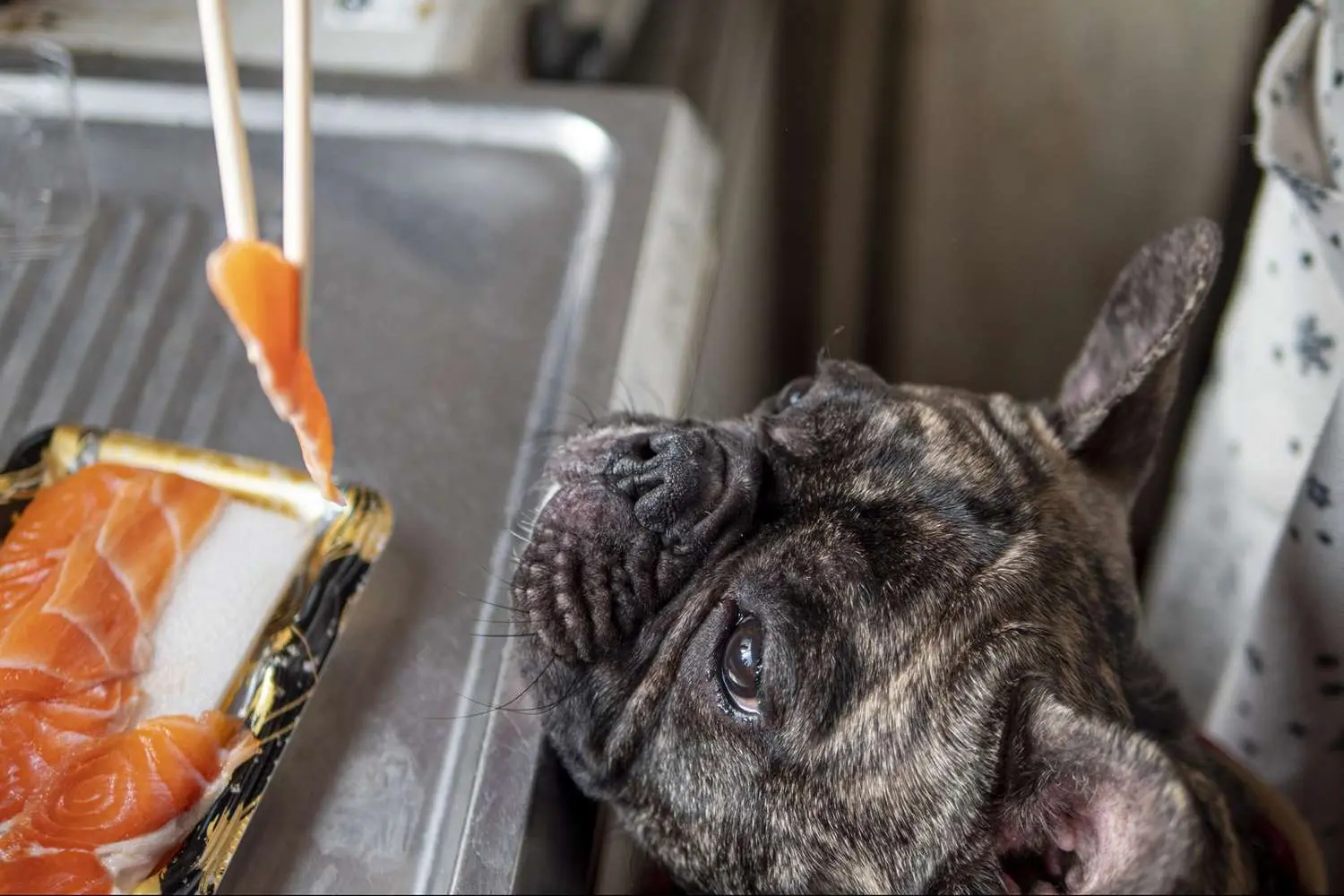Salmon is a popular fish that many people enjoy, but can dogs eat salmon too? In this article, we will discuss whether it is safe for puppies to consume smoked salmon and the potential risks and benefits associated with it.
Is Salmon Okay for Dogs to Eat?
Dogs are considered to be omnivores, just like humans, which means they can eat various types of meat, including fish. According to Robert C. Backus, MS, DVM, Ph.D., a veterinary nutrition expert, salmon is not toxic or harmful to dogs in small quantities.
Should Dogs Eat Salmon?
While salmon is generally safe for dogs, it is important to note that most commercially available dog foods already provide a complete and balanced diet. Therefore, adding salmon to your dog's diet should be done carefully to maintain this balance.
How Much Salmon Can Dogs Eat?
Feeding your dog a small amount of salmon every day as a dietary addition is generally okay. However, it is recommended to follow the 10 percent rule. This means that you should not add more than 10 percent of your dog's total daily calorie intake in the form of salmon. It is advisable to calculate your dog's calorie requirements and consult an online calculator to determine the appropriate amount of salmon to add to their diet.
Nutritional Benefits of Salmon for Dogs
Salmon contains essential fatty acids that offer similar benefits to dogs as they do to humans. These fatty acids have anti-inflammatory properties that can help dogs with dry skin problems. While there are dog-specific vitamins and supplements available to provide these essential fatty acids, salmon can be a natural source as well.
Health Risks of Salmon for Dogs
It is important to note that some dogs may not require extra fatty acids or additional vitamin D, which are also found in salmon. Therefore, it is best to consult with a veterinarian to determine your dog's specific dietary requirements and whether salmon is suitable for them. Additionally, dogs should never consume raw or undercooked salmon as it may contain bacteria and parasites that can cause salmon poisoning disease. Common symptoms of salmon poisoning include lack of appetite, vomiting, fever, diarrhea, weakness, and swollen lymph nodes. If your dog exhibits any of these symptoms after consuming raw or undercooked salmon, it is crucial to seek veterinary attention immediately.
What Type of Salmon is Best for Dogs?
If you decide to add salmon to your dog's diet, it is recommended to choose fish from the northern or southern latitudes. Salmon from cold water marine environments contains the most beneficial fatty acids due to the type of plankton they consume. Whether it is wild-caught or farm-raised, and whether it is fresh, canned, or frozen, the origin of the fish is more important than the specific type.
How to Safely Cook Salmon for Your Dog
Salmon must be thoroughly cooked before feeding it to your dog. It should reach an internal minimum temperature of 145 degrees Fahrenheit, according to the USDA Food Safety and Inspection Service. When preparing salmon for your dog, make sure to remove all bones and the skin, as it is extra fatty and adds unnecessary calories. Avoid adding any oil, butter, salt, pepper, garlic, onions, or other seasonings as these ingredients can be harmful to dogs. Keep it simple and let the natural flavor of the fish impress your dog.
Frequently Asked Questions
- Can puppies eat smoked salmon?
- What are the risks of feeding my puppy smoked salmon?
- Are there any alternatives to feeding my puppy salmon?
While smoked salmon may be safe for adult dogs in small quantities, it is not recommended for puppies. Puppies have more sensitive digestive systems and may not be able to tolerate the high levels of salt and spices often found in smoked salmon.
Feeding your puppy smoked salmon can lead to digestive upset, including diarrhea and vomiting. The high levels of salt and spices can also be harmful to their health.
Yes, there are many other protein sources that are safe and suitable for puppies. You can consult with your veterinarian to determine the best diet for your puppy's specific needs.
While salmon can be a beneficial addition to a dog's diet, it is crucial to introduce it carefully and in moderation. Consult with a veterinarian to ensure that your dog's nutritional needs are met and to determine if salmon is appropriate for them. Remember to always cook salmon thoroughly and avoid adding any seasonings that may be harmful to your dog's health. By following these guidelines, you can safely incorporate salmon into your dog's diet and provide them with potential health benefits.
If you want to know other articles similar to the safety and benefits of feeding dogs smoked salmon – a complete guide you can visit the Pets category.


Related Articles